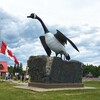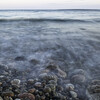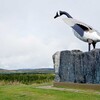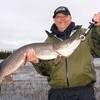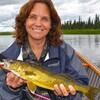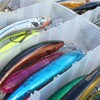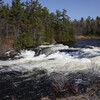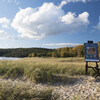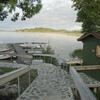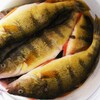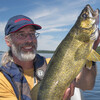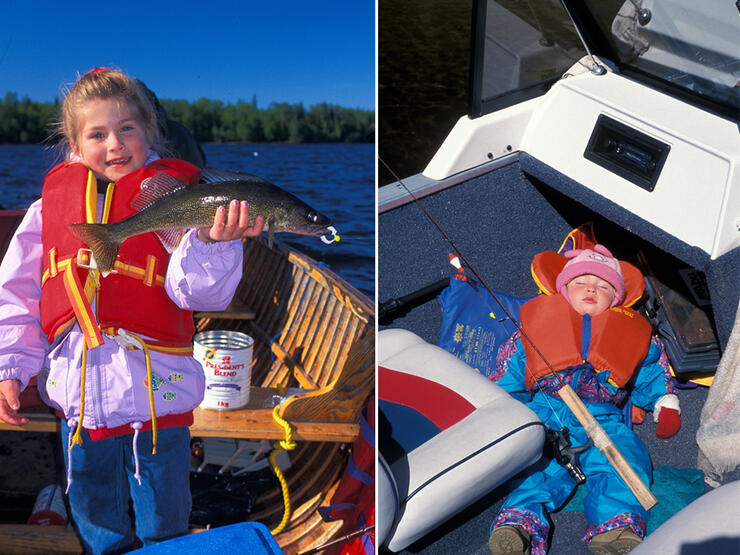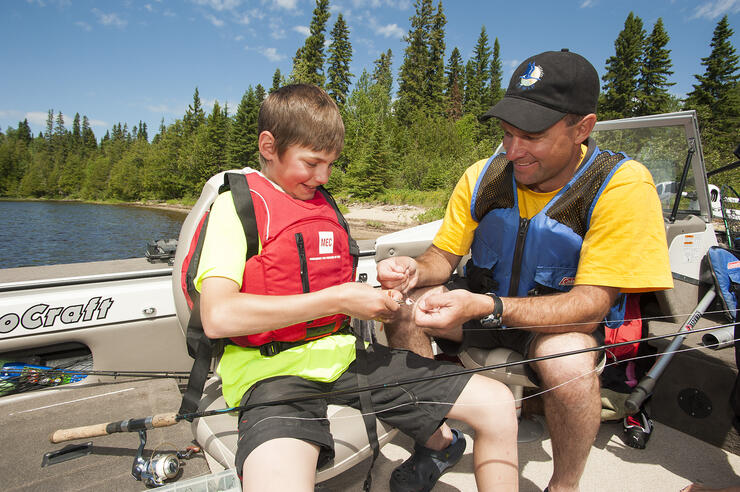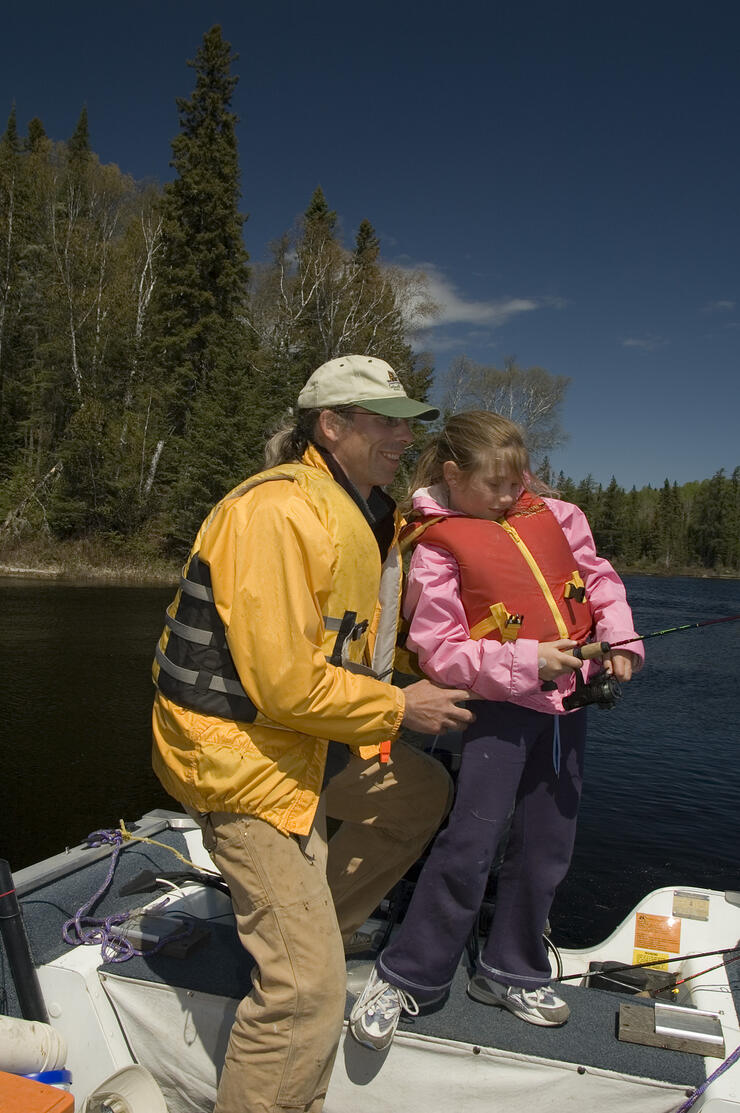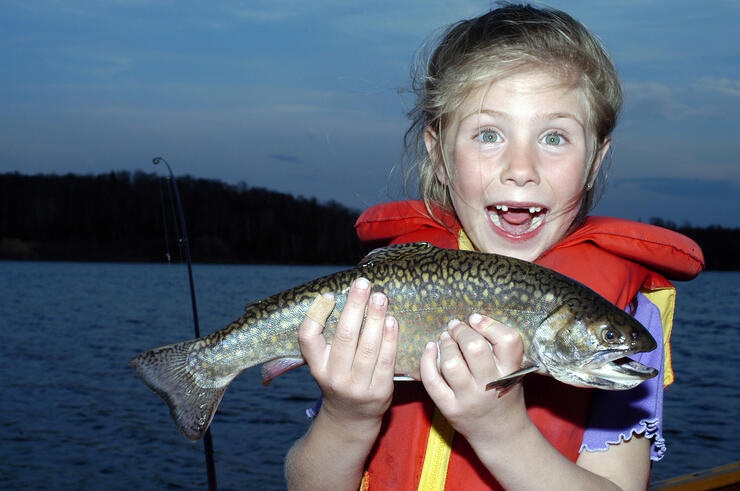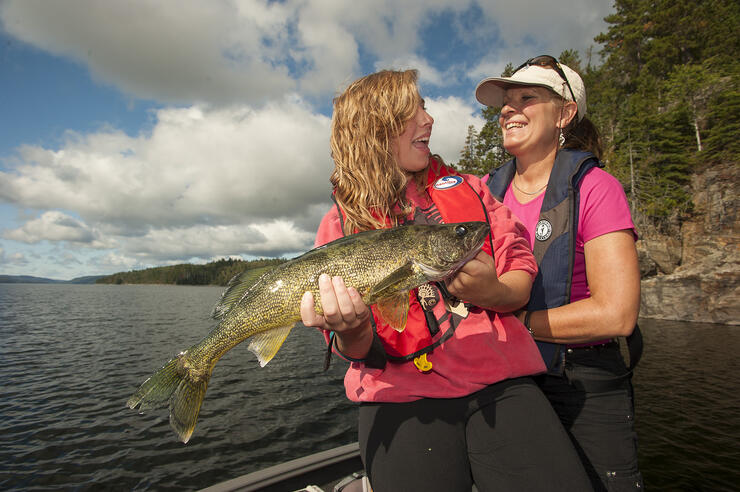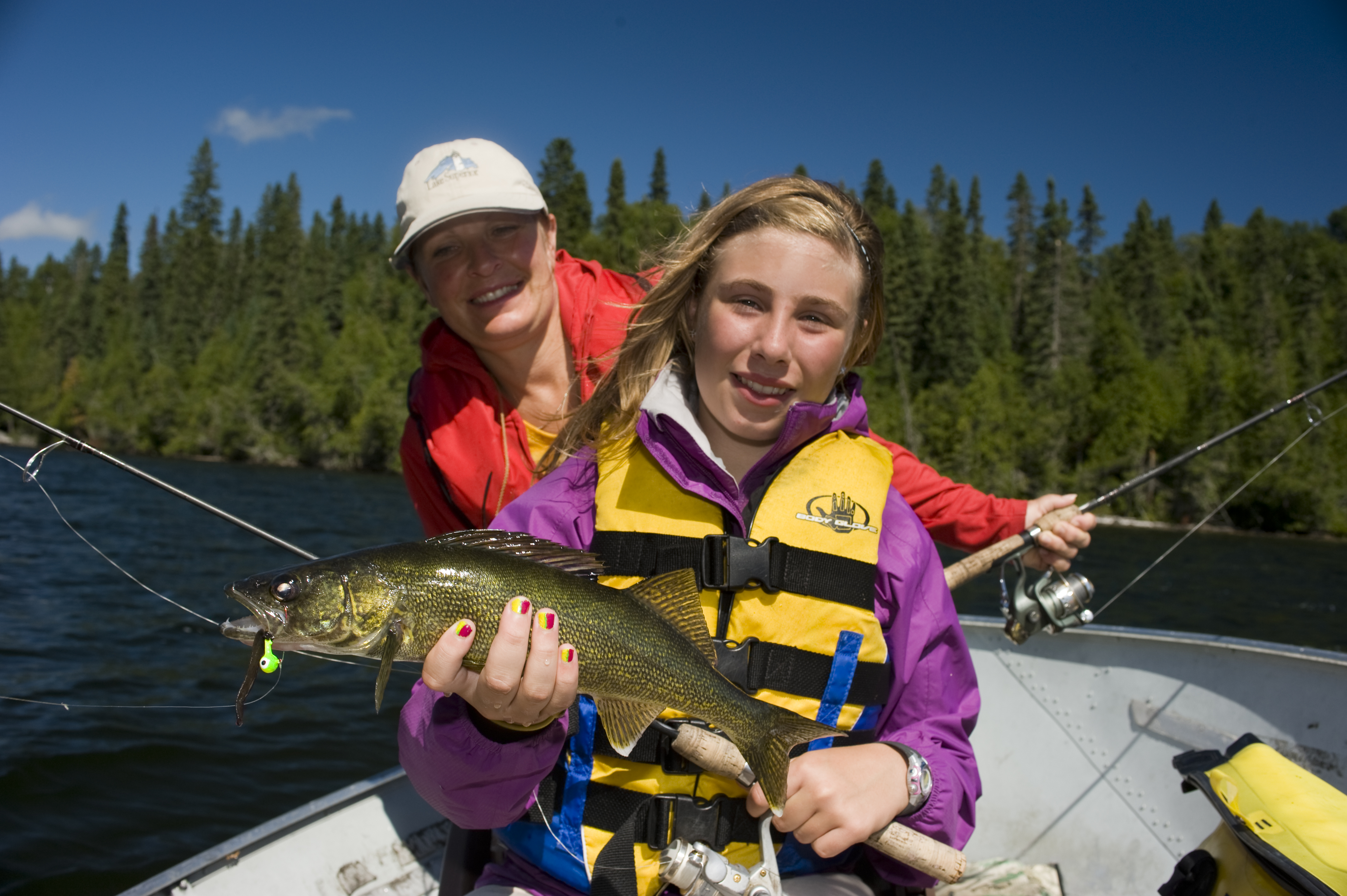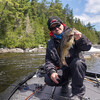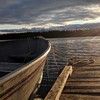
Family Fishing in Algoma Country

I was fortunate to find a spouse who loves fishing almost as much as I do. I say almost because I am pretty well insatiable. If the fish are biting, I can’t leave. If the fish aren’t biting, I stay to try and find a way of making them bite with a different bait, presentation, or spot. Even when my wife would suggest packing it in, I could usually coax another couple of hours out of her. Then we had children. And when the children decide it’s time to go… well, it’s time to go.
Before children, just about every weekend was spent exploring the lakes and rivers of Northern Ontario by boat, trail, or canoe. For an outdoors couple enjoying their lifestyle, the decision to have children was a tough one. Simply satisfying our angling habit had been demanding enough, but launching onto the stormy seas of parenthood created change and challenge that can really rock the boat. Of course, like any good parents, we’ve always included our girls in our fishing adventures with the hope of turning our youngsters into anglers. This is an admirable goal but a delicate one, especially for self-confessed fishing fanatics dealing with young ones who might not be as fanatical as their parents.
Thirteen-hour days on the water were no longer an option. Adjustments were made, and we did our level best at instilling a life-long passion for an activity that can be enjoyed as a family for years to come. And in our case, it worked well. Here are some tips for nurturing anglers from the cradle to the boat:
1. Start early. As long as they are wearing a PFD and are safe and comfortable, a child can’t be too young to start acclimatizing to being on the water.
2. Give them their own small rod when they are old enough to hold one. Be sure to tie a string from the boat to the rod just in case your little angler drops it overboard.
3. Try float fishing. Slip floats are easily adjusted to virtually any depth, work well when fishing at anchor, and make it simple for children to detect bites.
4. Get children involved – get them to help pack the lunch or help drive the boat. I open my tackle box and let them choose their own lure. Often, I’m surprised at what works.
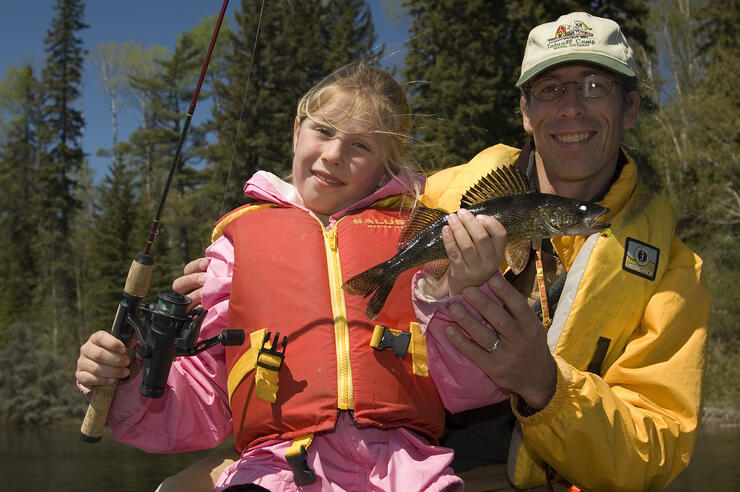
5. Go one on one. With the whole family in a small boat, things can get cramped and hectic. One child and one parent interaction is a great learning environment, and young anglers love the undivided attention.
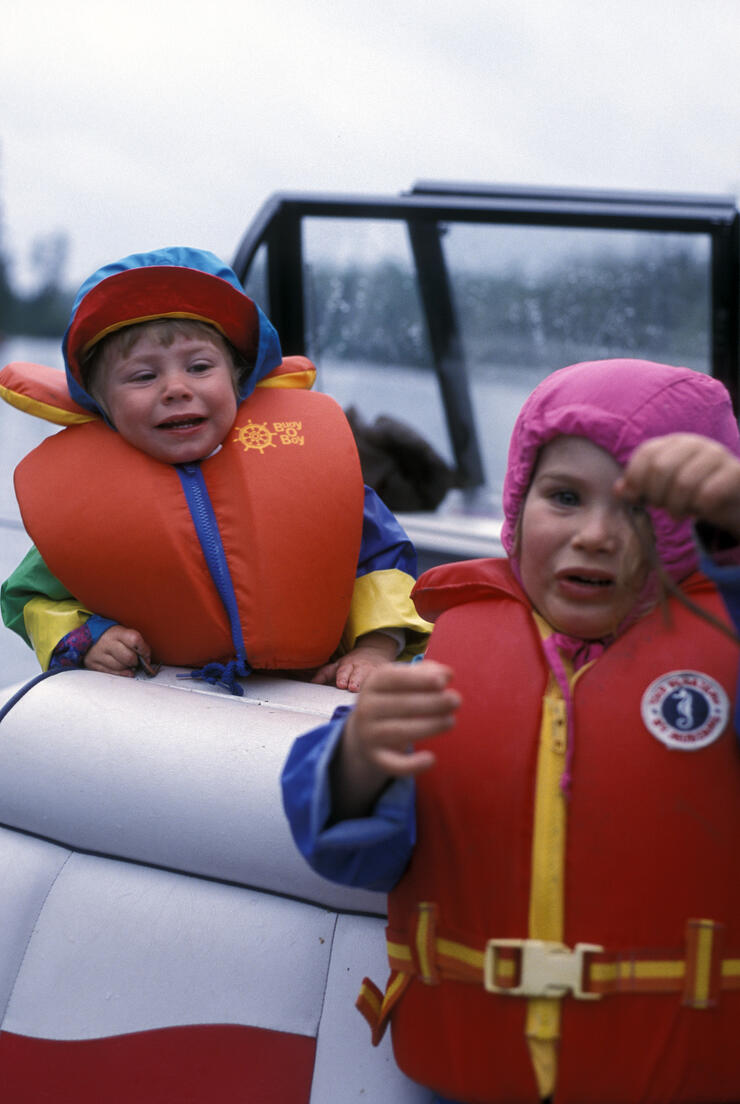
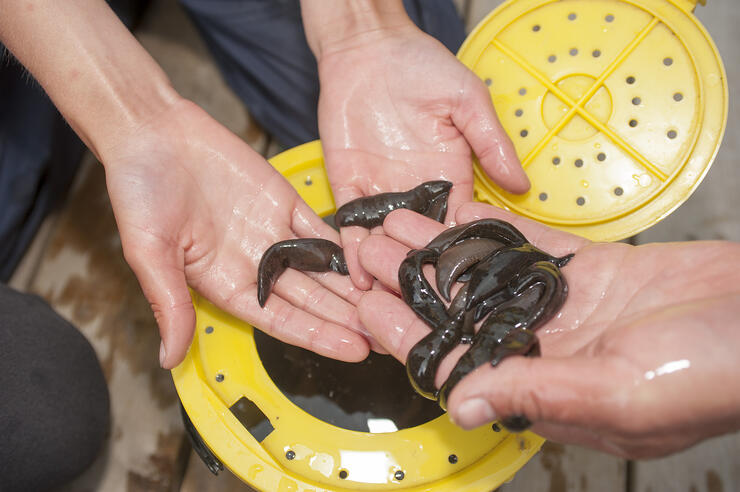
6. Use live bait. Not only does it catch fish, but children can entertain themselves indefinitely by playing with the minnow, worm, or leech bucket.
7. Go where there’s fish. Children like catching more than fishing. Save the experimental trips for older anglers.
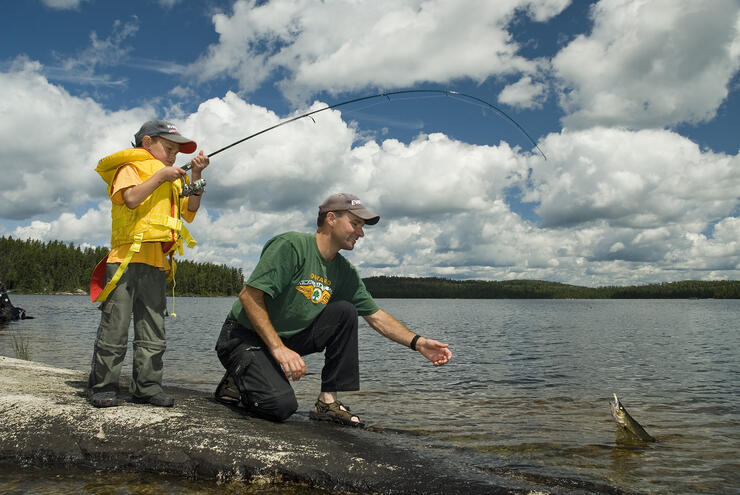
8. Try shore fishing. It’s often easier to keep children entertained on dry land than within the cramped quarters of a boat or canoe.
9. Bring food, drinks, books, and games. Boredom is fishing longevity’s worst nightmare. Even at the best fishing spots, the bite is not always on.
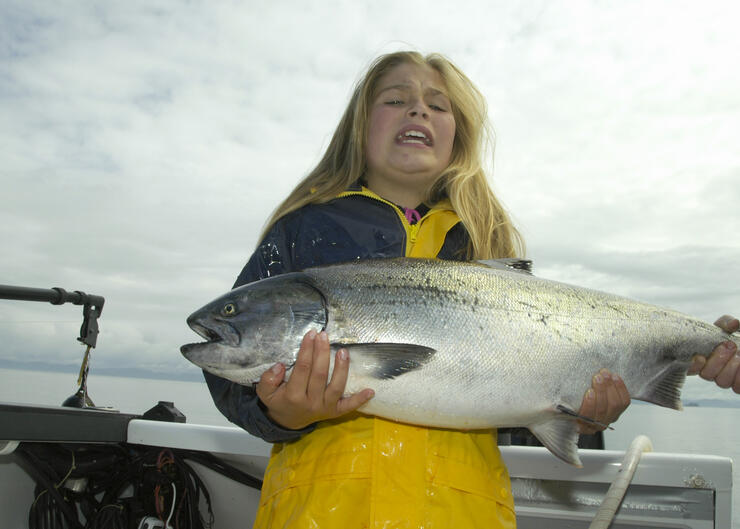
10. Learn when to pull the plug. Don’t let children push you around with early requests to leave, but learn to recognize when your child has had enough.
Not every child will blossom into a keen angler. But providing thoughtful and considered exposure to the woods, waters, and the creatures they hold is the best way to foster an appreciation for the great outdoors. They may grow to be lifelong anglers, or they may develop other interests. Either way, a careful introduction is key to successful family time outdoors.
Things to Know About Traveling to Algoma Country
1. Northern Ontario is only a 5-hour (350-mile) drive. You will cross over the St. Marys River between the cities of Sault Ste. Marie, Michigan and Sault Ste. Marie, Ontario via the International Bridge.
2. If both parents are travelling with children under the age of 16 you only require birth certificates for the children. If only one parent is travelling with the children you still require the birth certificates but it's always good to have a letter of permission to travel to Canada signed by the other parent. The Canadian Border Services officer may ask for this letter when crossing over into Canada. Learn more at www.algomacountry.com/travel-information
3. What can you bring to Canada? This information changes often, especially for food products. Visit www.inspection.gc.ca for the latest information.
4. You will need a fishing licence to fish in Canada. It's easy to get a licence and you can do it right online! Visit www.ontario.ca/page/fishing to buy a fishing licence online.
